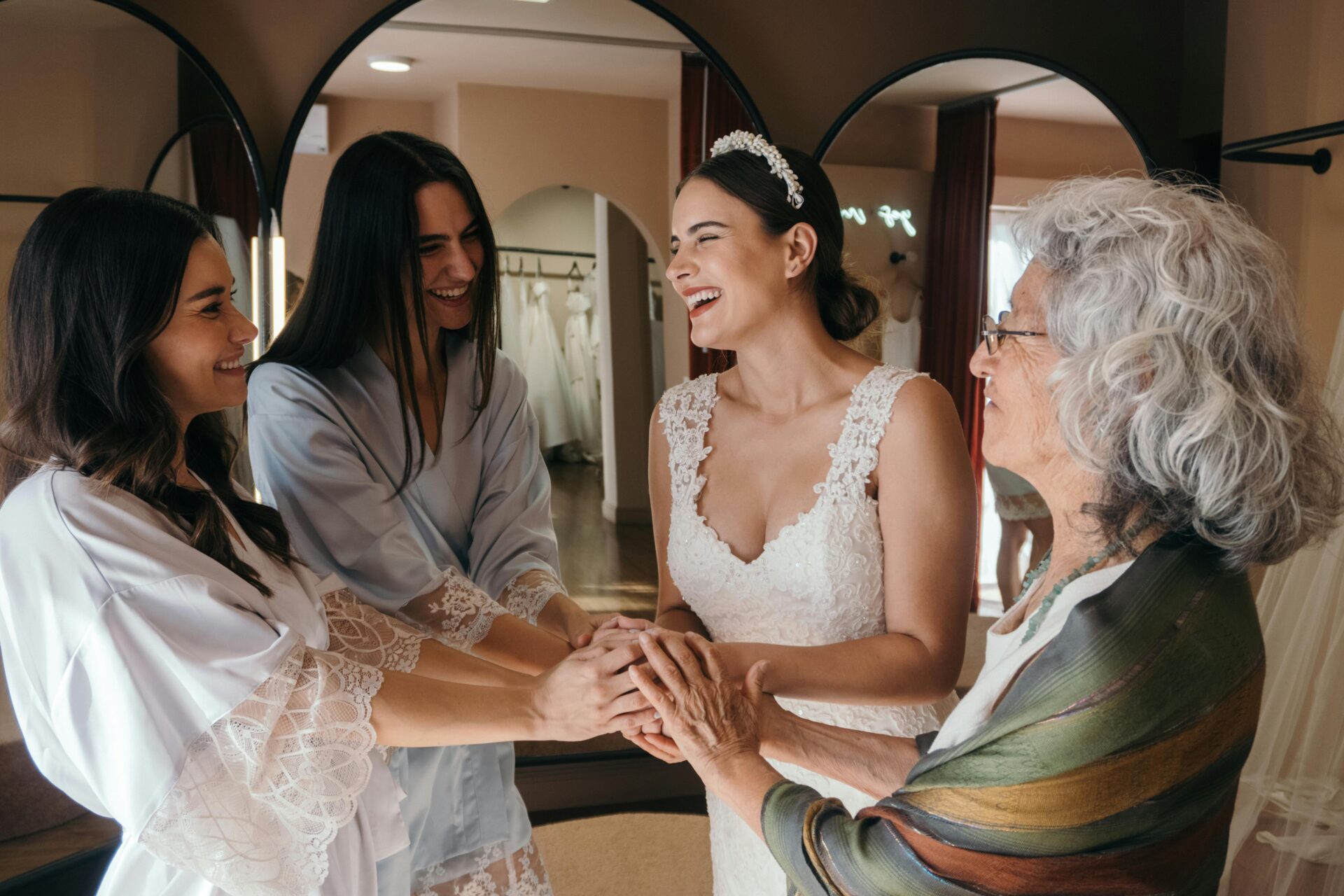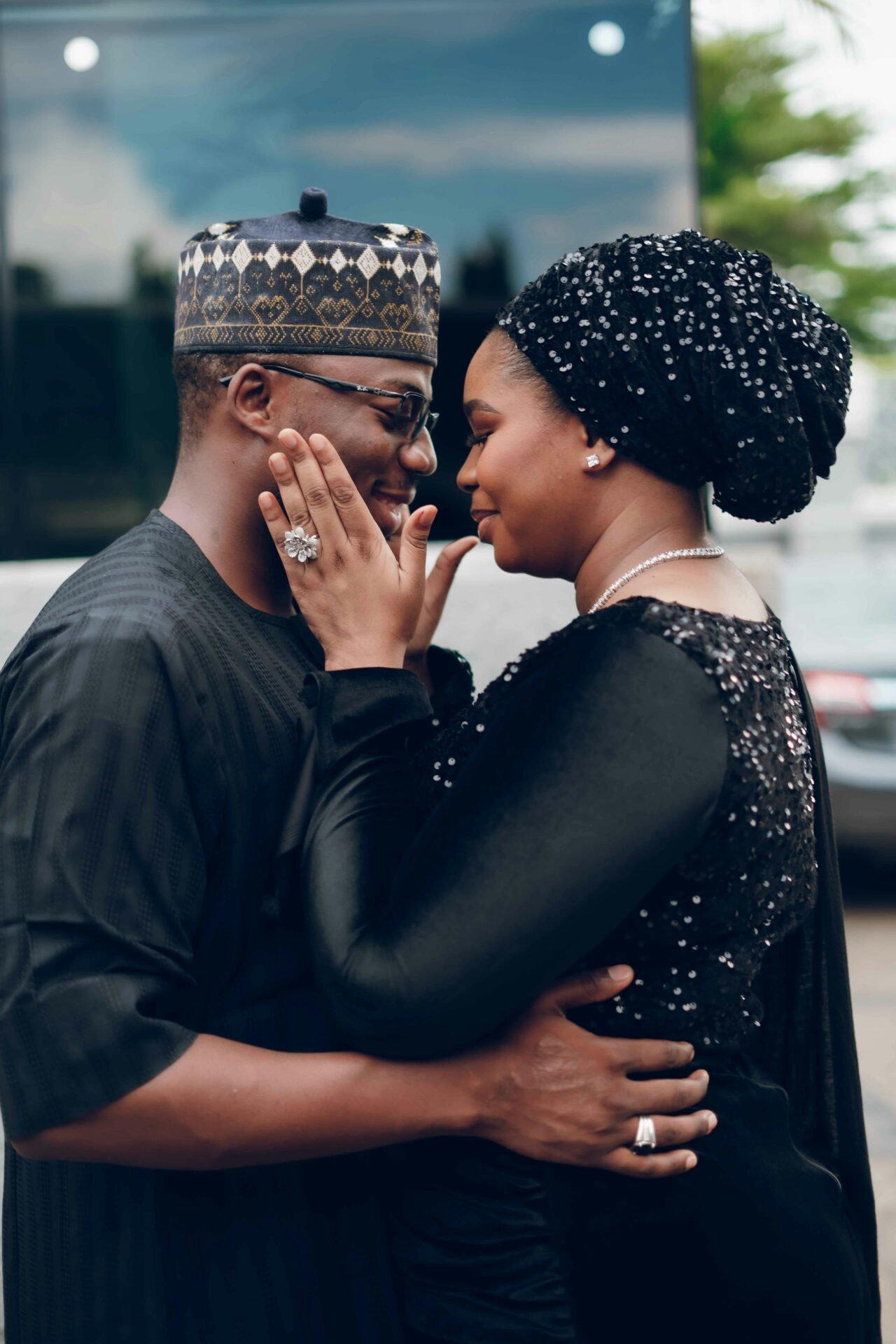
Wedding planning therapy, on the surface, is counseling you participate in individually or with your partner, while planning your wedding.
Why do we need therapy, while planning a wedding? Why do we need couples counseling before we’ve even been married?
Over the years, our team at AisleTalk has discovered that wedding planning isn’t just about well… planning a wedding. In addition to the logistics of planning, people are navigating family relationships, tension in their partnership, financial burdens, balancing various expectations and opinions, experiencing decision-making paralysis, blending cultures and religions, dedicating time to competing responsibilities, and managing their own mental health– all while attempting to throw one of the largest celebrations they’ve ever had.
It’s important to know, there is nothing wrong with you if you feel depressed or anxious during wedding planning, if you and your partner are arguing more as it gets closer to the wedding day, and if communication among family members isn’t “perfect.” Almost everyone has experienced some variation of this. A lot of people are still holding onto the idea that weddings have to be perfect and you should feel 100% happy leading up to this day. We aren’t talking about all of what genuinely shows up during this significant period of planning.
How can therapy help you survive wedding planning?
The biggest stressor we hear about is family dynamics and expectations. Existing strains in relationships can become intensified during wedding planning. If you’ve had any difficulties in your relationships with specific family members, sometimes those past experiences can show up in unexpected ways. For example, if you grew up with a critical parent, this criticism can feel amplified during planning your wedding when they try to share their opinions or thoughts. An argument about the color of your flowers can actually feel like “I’m not good enough and my choices aren’t good enough.” People who have not had the opportunity to process their childhood experiences that have been particularly tender, life altering, or even traumatic, can find those memories resurface more intensely during this time of heightened attention and expectations.

Although we typically think of a marriage as occurring between two people, the fact is, marriage truly is a union of two families and many times, of two cultures. You might find that it can become stressful to juggle multiple opinions and expectations – your own family, your partner’s family, and at times, each of your extended families. The tension, however, doesn’t only occur “across the aisle;” within families and across generations, cultural values, traditions, and expectations can contribute to clashes within the same family. For many cultures, there are certain responsibilities and obligations placed on adult children, so you might find yourself feeling guilty for setting boundaries with your parents or making decisions they don’t agree with. Many people experience guilt during this period, as they might ask themselves, “Am I being a good daughter? Am I being a good son? Am I disappointing my family?” When conflicts like this are brought up, people are often confronted with what can feel like an identity crisis.
There is a major challenge in balancing the innate desire of wanting to please your parents/gain their approval vs. fulfilling your own desires.
Clients have shared consistently struggling with finding how to meet their family’s expectations, while catering to their own interests. This becomes even more challenging when different cultural backgrounds and religions are present. More questions come up: “Do I have an American wedding and a Hindu wedding? My partner’s family is Catholic, but that religion never resonated with me, how do I make this a meaningful experience for myself and them?” The idea of having to choose then begins to hold higher stakes, and you might start to think about how these choices will affect your new family system, including your partner and their parents.

Weddings and marriages are milestones for individuals, couples, and their families. With this milestone, we carry visions for ourselves and our families’ visions for the wedding day. Wedding planning therapy is the place to process any feelings of guilt, disappointment, and hurt, while also finding ways to work towards a middle ground that feels realistic. Wedding planning therapy can allow you to learn how to assert or verbalize your own needs – something that you may not have done before with your family. These communication skills aren’t just helpful for you leading up to your wedding, but can become lifelong skills as you continue to strengthen the foundations of your marriage and future.
Our families are super supportive and we don’t have many issues there. Why would I need wedding therapy?
Identity Shifts and Life Transitions
Clients reach out for wedding planning therapy for other reasons, too. This period of life is a major transition – people who were once single are now engaged, and will soon be married. As people experience these changes, they often feel a loss of identity, a general sense of loss of who they once were.
Building Self-Awareness and Building Skills for Married Life
From early on, men and women receive different messages about marriage and what marriage is “supposed” to mean. One particular issue that can come forward in a relationship is balancing “me vs. we.” In marriage, men may often feel that they are gaining something, while women may feel that they are losing a part of their identity due to specific ingrained messages. Being in wedding planning therapy can mean processing: How does being engaged shift how I feel about my relationship and our commitment? How can I be part of this relationship without losing myself? What new values or existing values are most important to me? What does it mean to be “married?”
Dealing with Marital Conflict and Improving Communication Skills
When planning a wedding, you might start to notice what stressors rise with your partner, what sharing responsibilities feels like, and how the two of you are navigating disagreements. This is also an opportunity to strengthen your communication and conflict resolution skills, and take the time to re-define what you want your relationship to look like in marriage.
Learning How to Stop Comparing Yourself to Others
As we navigate transitions, we are also witnessing how other people are doing it – that is when self-comparison begins to happen. Perfectionism, self-esteem, and body image are all components of this self-comparison that are amplified during wedding planning. People can feel swayed by how models and celebrities look on social media or we may receive judgement of our bodies and physical appearance from others, particularly if we are surrounded by people and images that do not make us feel good about ourselves. You may be persuaded by certain platforms or media that your wedding needs to look exactly like what a mainstream wedding looks like and you may find yourself stressed for not being able to do so. Due to this, there is newfound pressure to impress everyone online and offline; the ideas of what weddings should look like are now limitless.
Overcoming Perfectionism and Balancing a Wedding Budget
While you deal with the stress of planning the perfect event, managing budget and finances is a stress point that affects almost everyone during wedding planning. Whether it’s the initial sticker shock of wedding costs, unclear budget expectations, or unspoken rules about “who pays and who says,” you may find yourself going back and forth with decisions, thinking through whether something is important to you or not. Decision making truly becomes overwhelming and you start to question if you’re making the “right” choices, especially if you are already such a perfectionist!
More than “Just A Bride”
Lastly, we will add that while you’re figuring out these parts and pieces of your wedding, there is still your “normal” life to live – you still have to go to work, you might still be planning social gatherings, you still have to tend to household responsibilities – and none of this becomes easier.

Why does all of this matter?
Let us be the first to say that it is not a requirement to have wedding stress and we do not operate under the assumption that everyone is stressed out by planning their wedding. On that same note, not all stress warrants a course of therapy.
That said, it’s also true that way too many of us minimize our stress and avoid asking for help because we’re scared about the perception of doing so. Many of us walk around with the assumption that therapy is a place for someone who has “hit rock bottom” or “must not really want to get married” – that’s simply not true. Moreover, this type of thinking actually magnifies any existing negative feelings because it leads to feeling guilty for having them.
The fact is that any kind of big moment in life always comes with a host of complex feelings. amidst long stretches of joy, excitement, pride and connection, we might also experience sadness, loss, frustration, confusion, disappointment, and inadequacy (think: having a baby, navigating a career change, moving to a new city). And for those of us with pre-existing mental health concerns like depression or anxiety? Well, this is all just a recipe for exacerbated symptoms under immense pressure.
Many of our clients come to us not when they’ve hit rock bottom, rather when they start to notice that previous coping skills aren’t working as well because there are multiple responsibilities to balance. A wedding planning therapist can help with finding ways to adapt and re-adjust to these unique circumstances, at this current life stage. You will be able to reflect on what is working and what is not.
So, what happens during wedding planning therapy?
Now that you’ve gained a bit of understanding as to why wedding planning therapy is important and how it can help, here is a glimpse of what you can process with a professional in a therapeutic space:
- What was it like growing up with your parents and/or siblings?
- What is your relationship like with your mother in the present day? What about your father?
- What has communication looked like within your family?
- How do your parents feel about your wedding?
- How do your future in-laws feel about your wedding?
- What do you need from your family that you may not be receiving right now?
- What kind of support have you received from your parents or future in-laws?
- How do your friends and others in your support network feel about the wedding planning?
- What expectations does your family have for you?
- What expectations do you set for yourself?
- What are your biggest strengths as a couple?
- What are the values and traditions that are important to you?
- How can you find a middle ground between your ideas and other ideas?
- How do you feel about getting married? What does it mean for you to be married?
- What are your fears and worries about this new life transition?
- Are you allowing myself to feel the negative emotions just as much as the positive ones? What is preventing you from feeling them?
- Who am I surrounded by that can support me in this journey?
—
AisleTalk is a team of incredible, empathetic therapists. We recognize all of the challenges that come with planning a wedding, the stress of your wedding day, being part of a large-scale event, and we are also here for the post-wedding reflections. If you want to learn about how our team can support you, reach out to us for a consultation! The AisleTalk team can work with you to figure out your needs and support you to your wedding and after.
